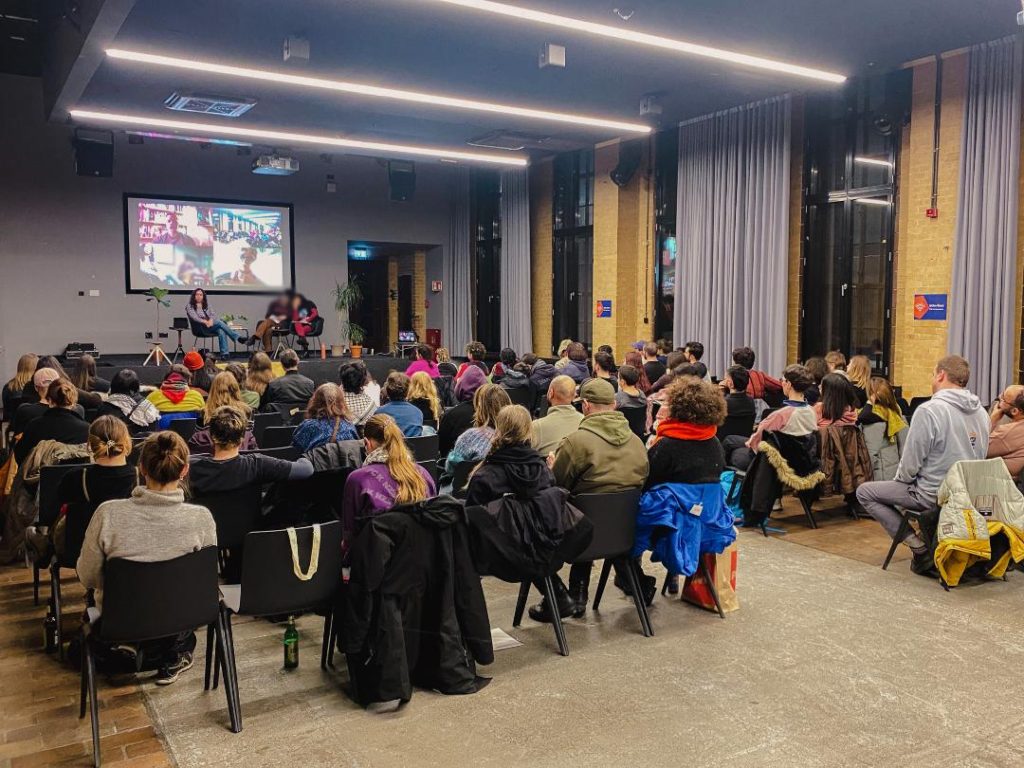
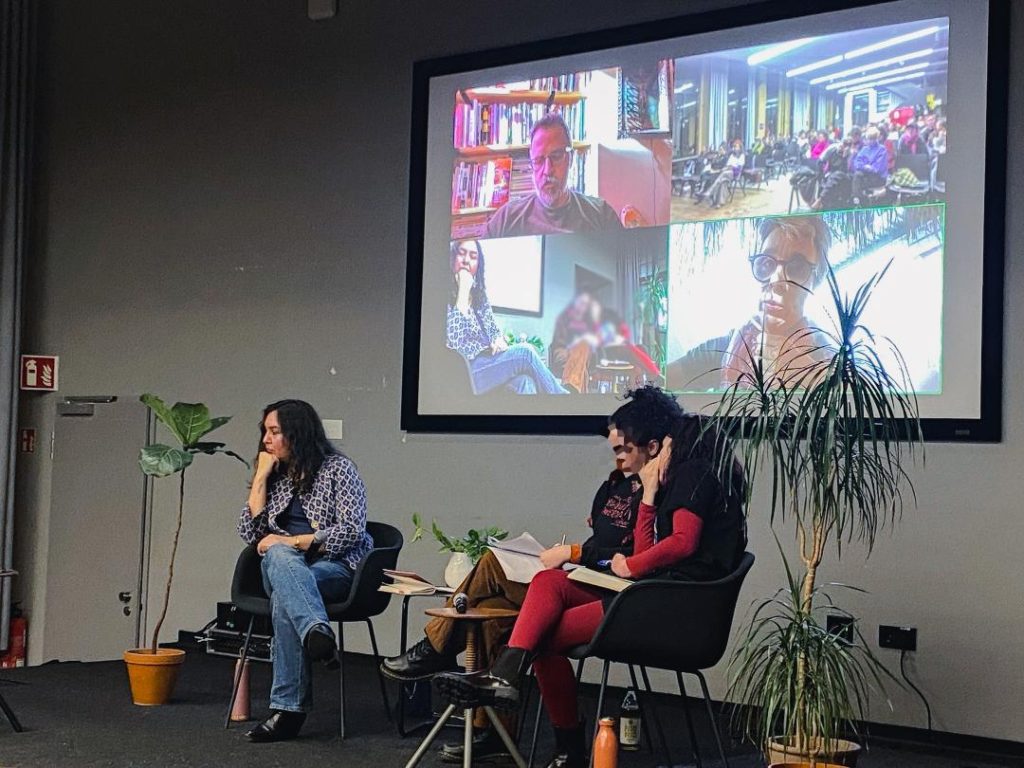
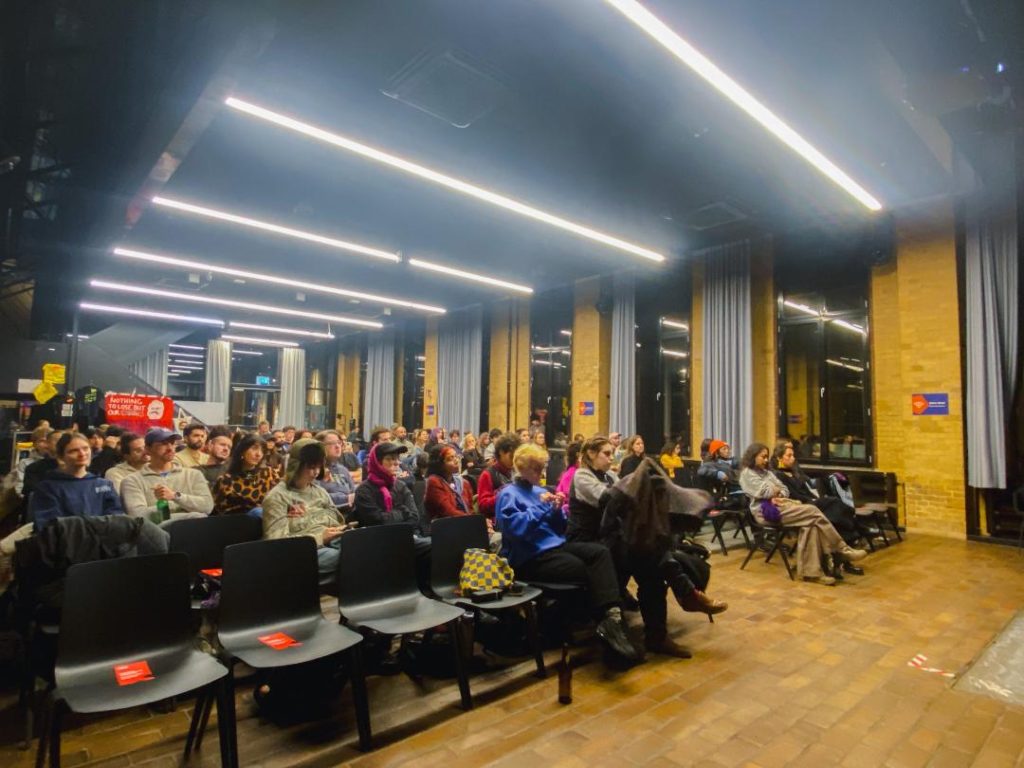
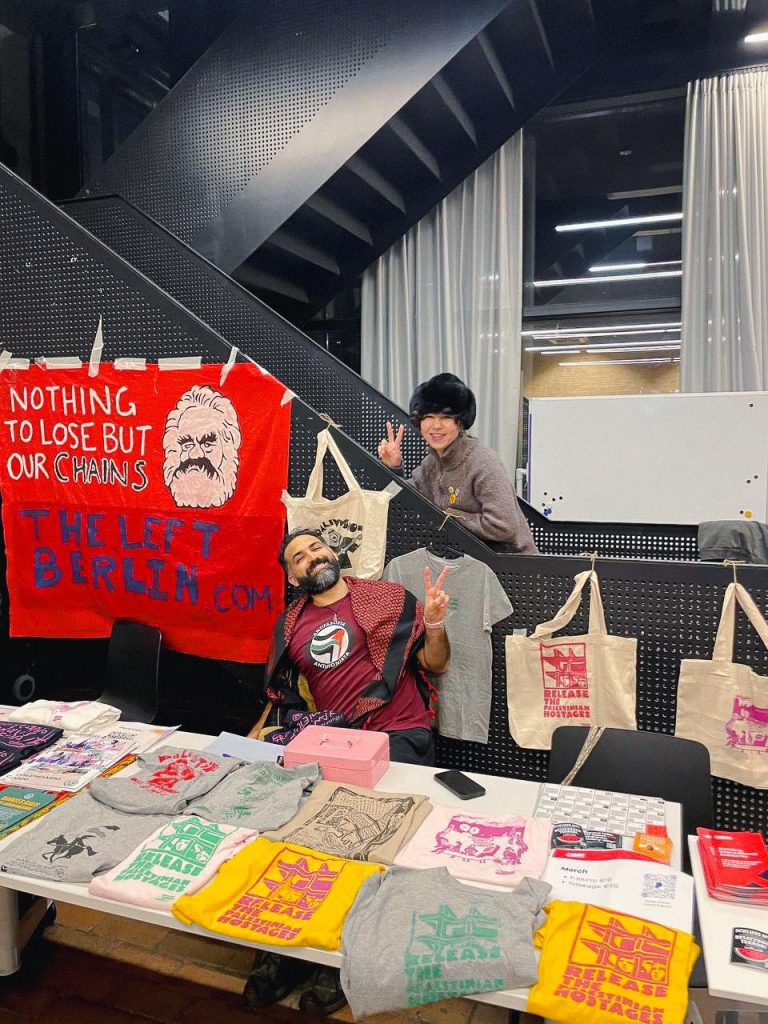
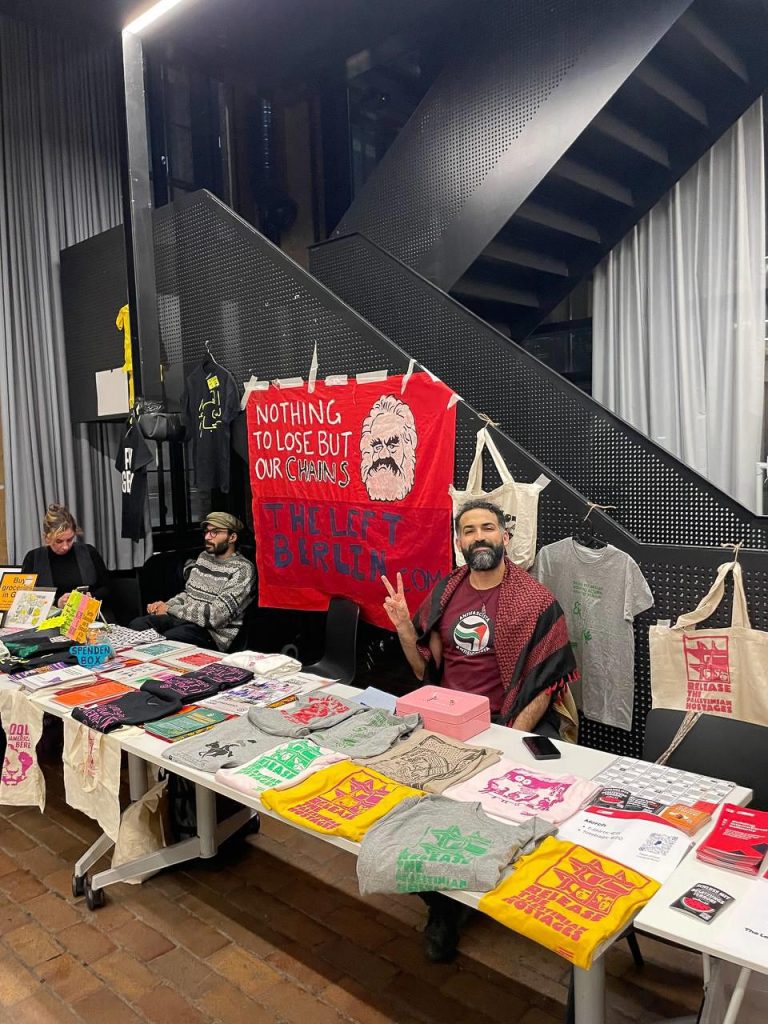
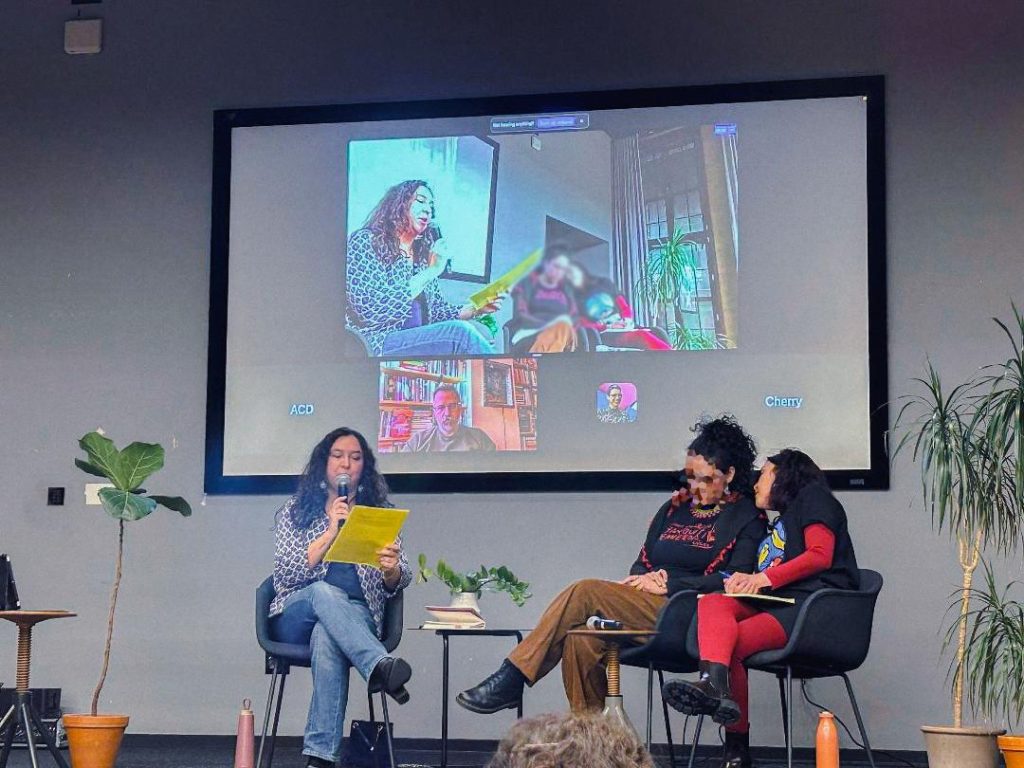
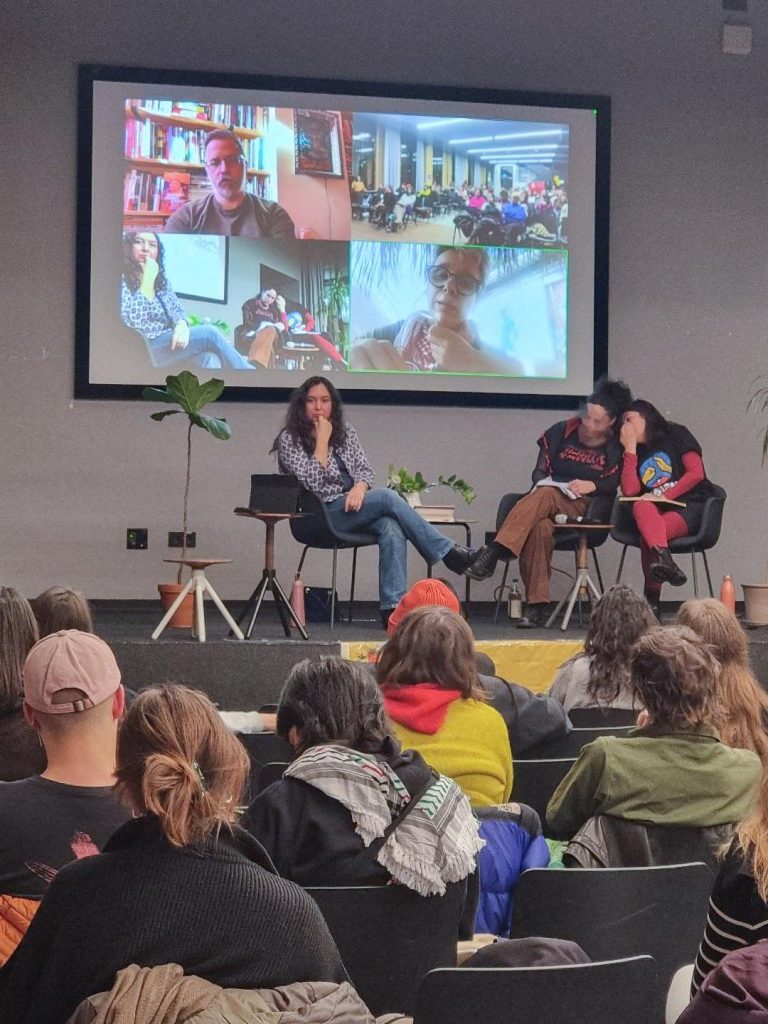
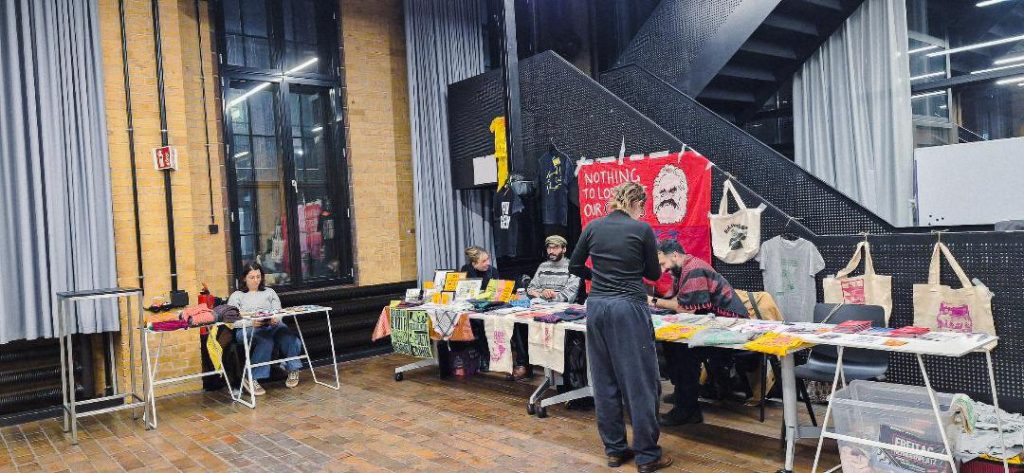
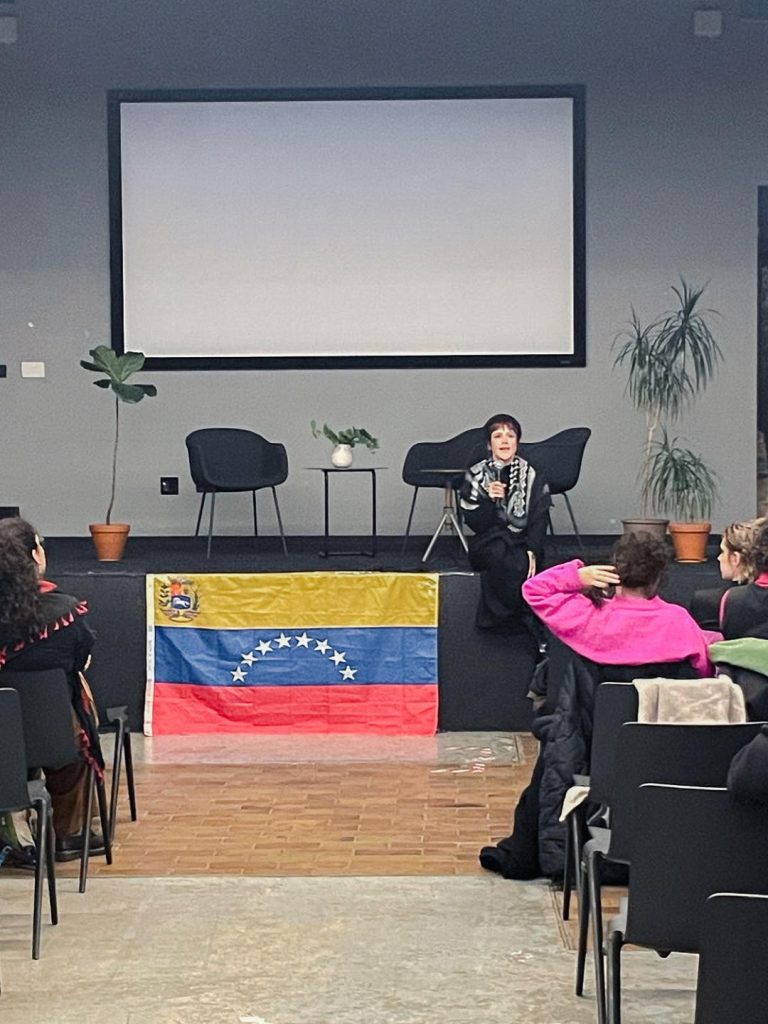
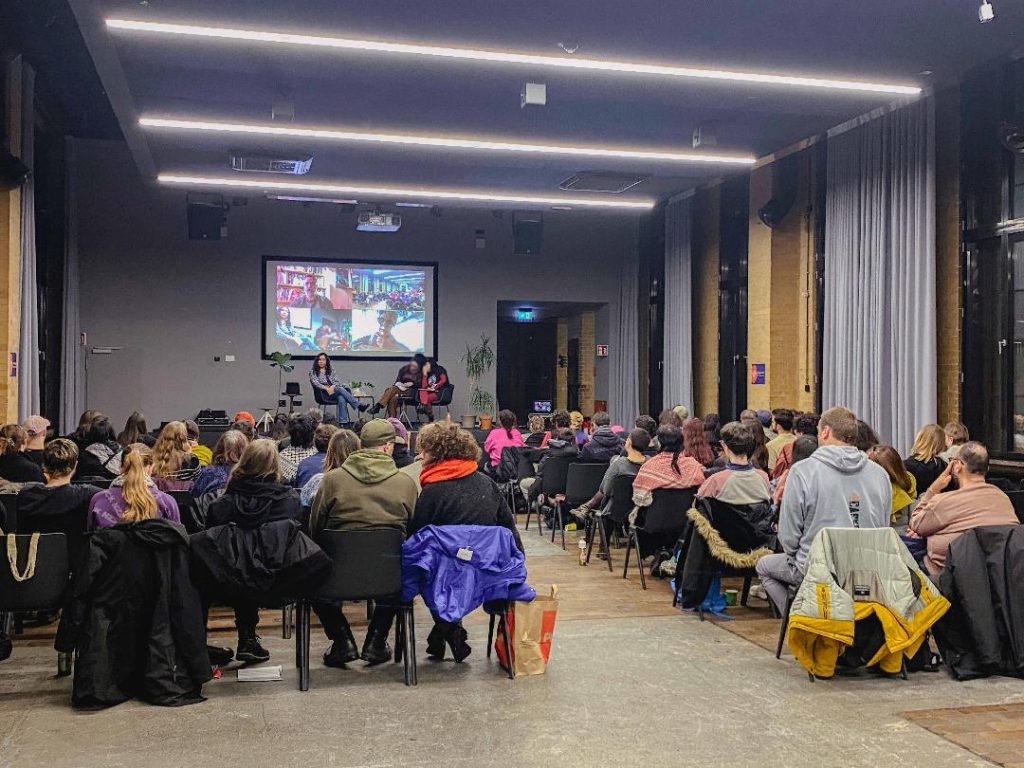
Friday, January 30th 2026 in bUm
The Left Berlin
02/02/2026
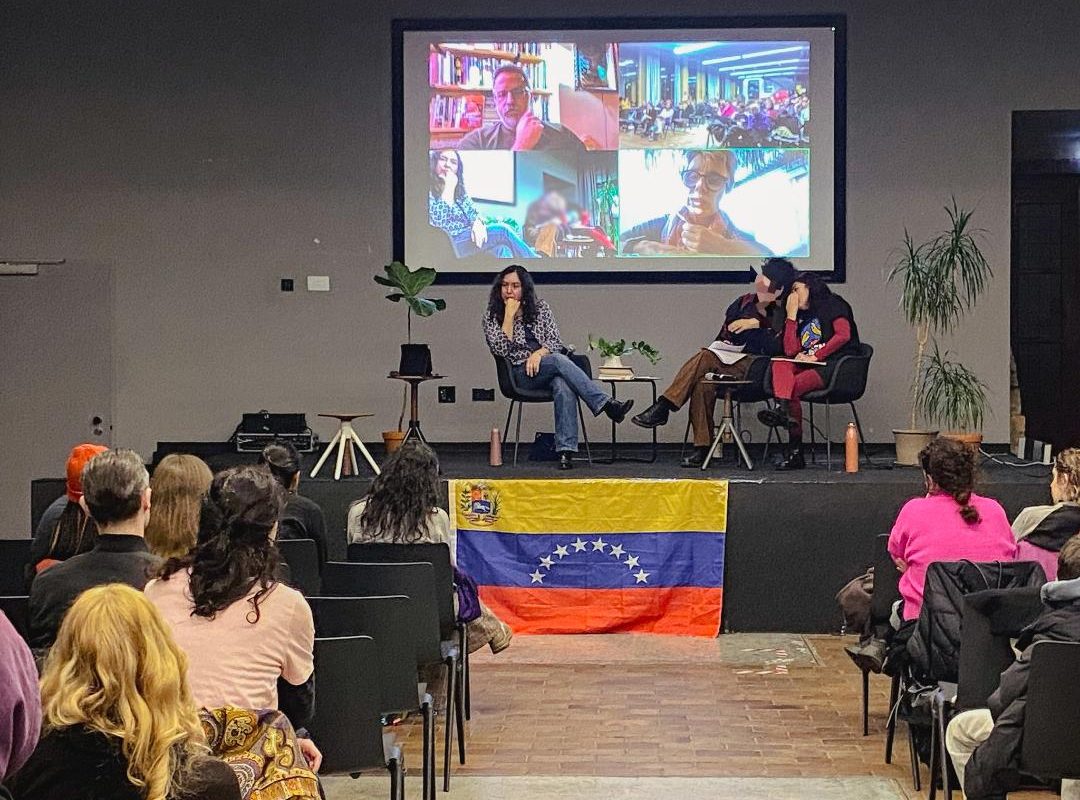










Statement by the Gesamtbetriebsrat (general works council) of Lieferando couriers

After it became known last year that Lieferando wanted to transfer 2,000 jobs to a “shadow fleet” of subcontractors and bogus self-employed workers, the works councils have suffered another setback in their fight for good working conditions and co-determination.
In its decision in proceedings 7 ABR 40/24, 7 ABR 23/24, and 7 ABR 26/24, the Federal Labor Court (BAG) declared the works council elections of several Lieferando works council committees to be invalid. The decision is also of considerable significance for a large number of other companies, especially those in the so-called platform economy, which manage their “employees” primarily digitally.
Essentially, the proceedings to be decided by the 7th Senate concerned the question of whether works council committees can be elected in spatially and organizationally distinct delivery areas (so-called remote cities) even though there is no physical management authority on site. In the opinion of the works councils, this is irrelevant, as management is carried out entirely digitally anyway, in particular via the mobile phone app used by the employees.
However, the court (continues to) link the works council eligibility of organizational units primarily to traditional management structures. The decision thus fails to recognize the reality of platform work, in which employees are managed digitally and perform their work exclusively and separately in their respective delivery areas. It is precisely there that the specific working conditions, stresses, and conflicts arise that make co-determination necessary.
“If co-determination depends on whether there is an office with managers somewhere, then works constitution law is no longer appropriate for the modern world of work,” explains Julia Warkentin, chair of the general works council.
“How exactly is a works council based in Dortmund supposed to represent the interests of employees in eight cities from Gelsenkirchen to Bielefeld to Bremerhaven? Platform work is real, it takes place on site – and employees need accessible representation of their interests there. Anything else weakens democratic participation in the workplace!”
The BAG’s decision also carries the risk that employers will be able to exert targeted influence on works council structures by centralizing and shifting control functions. In purely digital companies, for example, it is easy to assign delivery areas that operate independently to other administrative centers and thus get rid of “troublesome” works councils due to changing operational structures.
“This decision shows that legislators urgently need to adapt works constitution law to the reality of the platform economy,” demands Marius Schaefer, lawyer for the general works council (law firm Meisterernst Düsing Manstetten).
“The EU Platform Economy Directive must be transposed into German law by the beginning of December 2026. The federal government is called upon to also adapt the outdated concept of a “business” in works constitution law. It is equally important to implement the direct employment requirement demanded by the Conference of Labor and Social Affairs Ministers of the German States and the NGG trade union in this industry in order to maintain regular employment relationships.”
The works councils at Lieferando will continue to work together with the NGG to ensure that employees in digital and decentralized work structures are not excluded from democratic participation and good working conditions.
Is it possible to expand an anti-fascist action alliance?
Angelika Stepken
01/02/2026
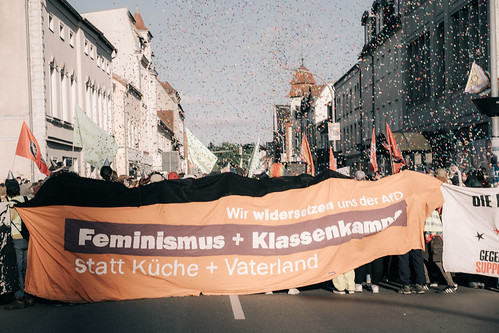
What has “Widerstzen” achieved?
After Giessen comes Erfurt. For over a year and a half, the alliance “Widersetzen” (Resist) has been organizing acts of civil disobedience against AfD party conventions and the founding of the new AfD youth association. Previously in Essen (June 2024), Riesa (January 2025), and Giessen (November 2025), they succeeded in disrupting and delaying travel to and the staging of party meetings on a massive scale. With great media coverage, the message was: no room for the right wing.
“Widersetzen” operates locally at a high level of logistical expertise. This must coordinate the nationwide arrival of buses and the traffic blockades of the various “fingers” / demonstration groups despite the police presence. [editor’s note: the Fünf-finger Strategie (five finger strategy) involves several demo blocks trying to break through police lines simultaneously. It was developed at anti-capitalist protests such as that against the G8 in Heiligendamm in 2007)].
At the same time, they use a high level of social competence in the preparation and follow-up to train the participants’ awareness and give them a sense of security in collective structures. “Widersetzen” thus generates self-efficacy in times of fear and “action gridlock.” ‘Widersetzen’ sees itself as part of “movement building” with its “networks of solidarity.” Its “campaign logic” and focus on the AfD (Alternative for Germany) triggers both criticism and discussion.
Widersetzen does not organize demonstrations, but rather it organizes civil disobedience by means of blockades. This means that participants need a dose of courage to physically position themselves on streets and intersections and thus literally resist the large contingent of AfD personnel and police. They also have to put up with hours of night-time travel in all kinds of weather. The group focuses on coalition politics, bringing in activists, trade unionists, for example Omas gegen Rechts, among others. This has to do with the urgency of the motivation, but also with the way the action alliance addresses, welcomes, and supports them.
Widersetzen is a relatively new action alliance that has carried out three campaigns in less than two years, but has had—with quite spectacular results. Fifteen thousand people traveled to Riesa and Giessen, significantly delaying the AfD events. Eighty-five thousand people now follow “Widersetzen” on Instagram. Around a hundred local groups have been activated nationwide., and sStrategic discussions are being held in specific working groups. For example: “How can an anti-fascist movement in Germany grow and act efficiently without falling into rituals of exclusion?”
Especially – after the brief mobilization following Correctiv’s investigation into the secret plan (early 2024) and the Brandmauer discussion in winter 2025. – grow and act efficiently without falling into rituals of exclusion?
How does ‘Widersetzen’ organize itself and its supporters?
Anyone who wants to participate takes part in action training. This instructs a large group of people, both precisely and kindly, on the various legal aspects and strategies of joint protection and resistance behavior. Those who attend these meetings learn and are prepared for joint action. The collective preparation leads to joint action and allows a follow-up, both personal and political. Such interactive care behavior is unusual for a political initiative, especially since it involves thousands of people, some of whom have no experience of resistance. The introductory meetings are about imparting experiential knowledge, care, and practical training. This is not a theory course nor one on the history of civil disobedience, nor to debate strategies for anti-fascist resistance. This makes it easy to get started immediately without arguments between different political positions. The focus is on the obvious action: no room for the right wing. Many can agree with that.
The homepage “Widersetzen” (resist) suggests neither an anti-fascist theoretical organ nor a militant left-wing project. In April 2024, the first online-meeting took place with 170 participants, who decided after 90 minutes to organize a nationwide resistance. After only 10 weeks of mobilization, around 7,000 people took part in their first actions.But the group also acknowledges its own weaknesses. Initially insufficient resources led to “unstructured work to defend against repression.” There was a lack of systematic legal review of the protests and clear agreements. Almost all processes were improvised spontaneously (www.widersetzen.com).
Learning from this, six months later, preparations for the blockades of the AfD federal party conference in Riesa were more thorough., Many, many preparatory action trainings took place nationwide, in union rooms, left-wing centers, and social spaces. They drew on the experiences of a network of movement-oriented action trainers in the run-up to and during the 2007 G8 summit in Heiligendamm.
On the website skillsforaction.noblogs.org, they offer their knowledge in the form of workshops, comprehensive manuals, and handouts. This knowledge transfer increased individual and collective capacity for action, and reduced fears and new things were learnt collectively. Anyone who wanted to board the buses to Riesa at 2:00 a.m. at the Berlin bus station had the chance to be prepared. They knew about the idea of civil disobedience; communication structures among themselves; mutual protection during the action; how to behave in the event of police intervention; the contact numbers of the investigative committee; practical equipment, and the action sticker. These preparatory meetings, some of which were attended by 60 to 80 interested people, already generated a feeling of group spirit, reliability, solidarity, and resistance “at home.”
Widersetzen is a network in the making. An activists’ conference was held in Leipzig in October 2024. Thereafter structures became more professional, large digital planning meetings were introduced, and a clearer division of labor was established within the nationwide network. In addition to the network of local groups allowing decentralized anti-fascist initiatives, working groups meet to discuss awareness, repression, press, etc.
Formally, “widersetzen” has no legal form; it is a donation-based alliance. Almost 100,000 euros were raised for the action in Giessen. In terms of press law and accounting, the VVN / Association of Victims of Nazi Persecution – Federation of Anti-Fascists e.V. is listed in the imprint. In Berlin, a group of about 80 people now meets weekly forming.As Mila from the Berlin group reports, it is:
“a completely separate local group with its own understanding of political work. Like many other local groups from Mecklenburg-Western Pomerania, Rostock, Hamburg, and Greifswald, we supported the protest against the Nazi march in Demmin, but also last fall’s migrant-led We’ll Come United caravan from Thuringia to Berlin… “Widersetzen is an action alliance of groups that work in very different ways and have different political analyses, but nevertheless say: we can at least agree that we see the AfD as a great danger to democracy, to social cohesion, to solidarity, and that with the AfD, fascism is becoming increasingly likely. Mass civil disobedience is important because demonstrations alone no longer have any effect. There are a lot of people who no longer know: what can I actually do? Widersetzen offers them a collective space.”
How have “Widersetzen” activists assessed the organisation themselves?
Back in June 2025, Raul Zelik asked in an article “Drivers of Fascism” whether fascism stems from fascist movements, or whether it “represents a deepening of existing power relations, in which the self-restraint of sovereign power (…) is lifted in the face of a crisis?”
However in issue 720 from last November, Antifa AG of the Interventionist Left warned against underestimating the independent danger of organized fascism, and sees Widersetzen as more than just as a one-off campaign.
“Through its reach and networking, ‘Widersetzen’ is more than an action alliance. It is a place for discussion, strategy development, and anti-fascist (initial) organization. (…) An anti-fascist movement must be able to build social counterpower. But that takes time and movement building.”
In December, the group “Demos neu denken” (Rethinking Demos) criticizes that the greatest strength of ‘widersetzen’ is also its limitation, namely its “campaign logic”. It calls instead for demonstrations to be understood as “movement publics” and “spaces for collective opinion-forming,” promoting self-organization and small groups. On January 20, Mine Pleasure Bouvar writing for a&k 722 summarizes these critiques with a 1932 quote from the German communist Ernst Thälmann:”The Anti-Fascist Action was too focused on demonstrations, conferences, and the offensive against Nazi terror, which undoubtedly has a good revolutionary side; but the Anti-Fascist Action was not sufficiently oriented toward strategic work in the factories and at the stamping stations.”
What is the current focus of work?
January 26, 2026: Just seven months before the state elections, the AfD in Saxony-Anhalt presented a 156-page draft of its election program, which is to be adopted at the state party conference in April.The party wants to counteract the alleged “extinction of the German people,” as it says verbatim, and to no longer provide state support to churches. A proposed “voluntary citizens’ watch” is to be introduced, subordinate to the public order office. Authorities are no longer to check the political views of gun owners. The State Agency for Civic Education is to be abolished as a “left-wing indoctrination institution.” Inclusion is to be ended, and children with disabilities are to be placed in special schools. History lessons are to teach the origins and “success story of this state.” The “normal family consisting of a man and a woman, from which children are born” is to be the model, and rainbow flags will be banned in schools. Associations should only receive funding if they have made “a credible commitment to the democratic order and a patriotic attitude.” Etc.
The AfD currently enjoys 40% voter support in Saxony-Anhalt. Regardless of differing analyses of fascism and capitalism, resistance – Widersetzen is necessary: now!
A leftist reading of the Kurdish national project
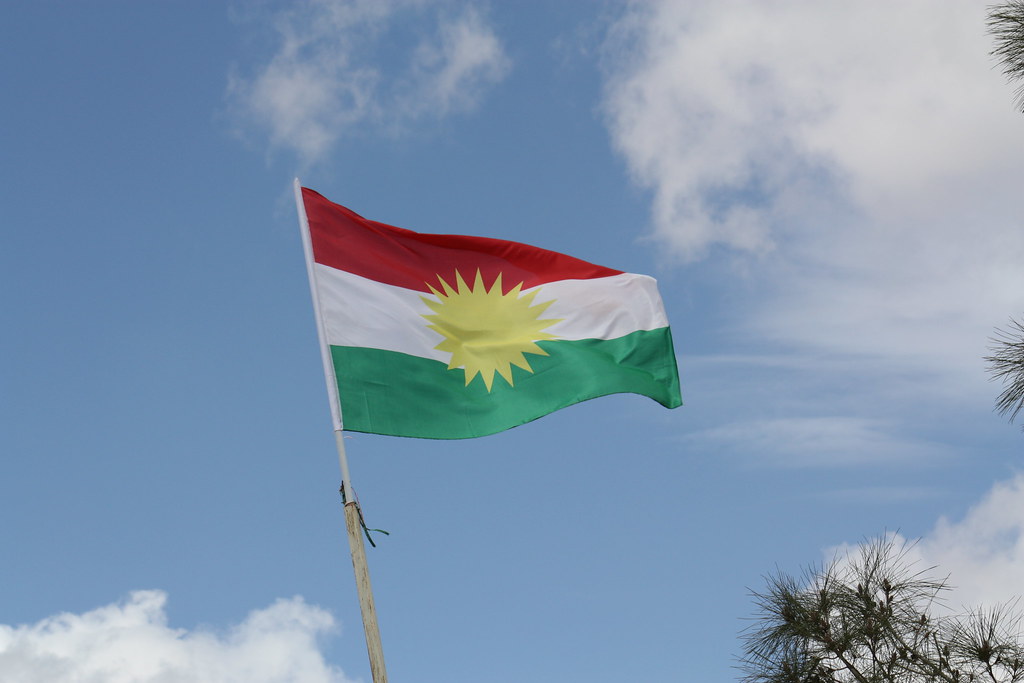
Introduction
The Middle East has witnessed bloody national conflicts that have left millions of victims and displaced persons. The Kurdish question represents one of the most important of these conflicts, as Kurds are distributed across four countries: Turkey, Iran, Iraq, and Syria. The fundamental question is: What is the possible solution now? Is it in building separate nation-states, or in struggling for a citizenship state with equal rights?
There has been and still is blatant national oppression against the Kurds. In Iraq, brutality reached its peak with the Anfal campaigns, the chemical weapons bombing of Halabja, and “Arabization” policies. In Syria, the Arab Belt and the 1962 census that stripped hundreds of thousands of their citizenship, and today in January 2026, this path is renewed through military attacks on areas led by the Kurdish Syrian Democratic Forces (SDF). Turkey has classified Kurds as “mountain Turks” and destroyed thousands of villages. In Iran, compound repression, executions, and economic marginalization continues.
However, these policies did not target Kurds alone; the dictatorship that crushes Kurdish identity is the same one that oppresses all citizens. The struggle against national oppression is part of the general struggle against tyranny. Confronting real oppression is not achieved by replacing one dominant nationality with another, but by dismantling the foundations of the exclusionary nation-state itself and building a democratic state based on equal citizenship.
From “Oppressed Nationality” to Ruling Authority
In the Kurdistan Region of Iraq, the “oppressed nationality” transformed into a ruling authority facing accusations of repressive practices and organized corruption. The two main parties established familial-tribal rule. A bloody civil war erupted (1994-1998) in which thousands of Kurds were killed, caused by the struggle for influence and resources. To this day corruption is rampant, salaries are cut off, and demonstrations are suppressed, while the two parties continue to monopolize wealth.
In Syria, the SDF transformed into an authority with a centralized character, with limited margin for pluralism. Despite progressive reforms in social aspects and women’s participation, these remained governed by a certain class and political ceiling. Human rights violations were recorded, including child recruitment and arrest and suppression and torture of opponents.
The nationalist discourse transformed into an ideological cover to justify tyranny and reproduce relations of domination. Historical national victimhood does not grant any authority absolution to practice oppression. The transformation of “oppressed nationality” into a “tool of oppression” represents the great moral defeat of the liberationist project, and proves that the flaw lies in the structure of the exclusionary nation-state itself.
Marginalizing Class Struggle and the Danger of Civil Wars
National conflicts push societies toward fanaticism and civil wars, in which the toiling masses become fuel for conflicts that do not serve their interests. Exclusionary nationalist discourse transforms the conflict from a class conflict between the toiling masses and the ruling classes into a false national and identity conflict. National conflicts are a tool for weakening class struggle and distracting the masses from their daily issues related to rights, work, wages, services, and social justice.
Under the cover of defending nationality, class struggle is marginalized, exploitation is justified, and authorities are immunized from accountability. The left’s mission is to rely on human and internationalist identity and solidarity with the suffering of all civilian victims of dictatorship and wars, regardless of race or religion. Selective solidarity is inhumane thinking which contributes to entrenching fanaticism and weakening any liberationist project.
Is the Nation-State Possible Now?
Objective conditions are not suitable for a Kurdish nation-state project. Kurdish areas are surrounded by hostile regional powers, and national movements lack real international support. American support is circumstantial and linked to immediate interests. Even if a Kurdish state were achieved, what guarantees its survival or prevents its transformation into a new dictatorial model? The experience in the Region and Syria is evident: tribal-partisan rule, tyranny, corruption, and human rights violations.
It is necessary to speak clearly about a demographic reality: many areas do not have a single national majority. How can a national project be built on lands where part of the population is from other nationalities? This problem creates acute tensions and opens the door to accusations of practicing “Arabization,” “Kurdification,” and “Turkification.” It is difficult to build a nation-state in multi-national areas without creating new national injustice.
Betting on America
Some Kurdish national movements have built their projects on American support. America, as the largest capitalist power, supports reactionary regimes and has never been on the side of oppressed peoples. Its alliance with Kurdish forces came to fill a vacuum resulting from the absence of large American ground forces. Recently, the alliance in Syria shifted toward Ahmed al-Sharaa and the central government, despite him being on the terrorism list, revealing that America cares only about its interests.
American policy stems from its strategic interests, as shown by experiences of abandoning its allies: the Kurds in 1975, and the Afghans after the Soviet withdrawal. Betting on major capitalist powers is betting on a “political mirage.” These powers see national movements as “pawns” on a geopolitical chessboard.
Citizenship State and Rights with Human Identity
A distinction must be made between demanding cultural, linguistic, and administrative rights, and demanding a separate nation-state. These rights are legitimate demands that every leftist should support. Struggling for them is more appropriate within the framework of an equal citizenship state transcending nationalities and religions. Today’s possible alternative lies in a citizenship state that neutralizes nationality and religion from power, and restricts the formation of parties on national or religious bases.
This transition is a gradual path requiring clear constitutional mechanisms. The model of geographical federalism emerges as an alternative to national federalism, whereby regions are granted broad powers, which empties the conflict of its ethnic charge. This must be coupled with “comprehensive constitutionalization of identities” and building supervisory institutions and an independent judiciary.
International experiences prove the possibility of building this model; Switzerland succeeded in accommodating four official languages, South Africa chose citizenship, and in India, Bolivia, and Spain there are attempts to manage diversity. These examples confirm that the alternative is not a utopian dream.
It may be said that the citizenship state is a utopian dream, but the separate nation-state project is more utopian. Talk of an independent, stable Kurdish state surrounded by hostile states, without international support, and in multi-national areas, is a distant dream. The citizenship state is a gradual project that begins with concrete steps: constitutionalizing national rights, building democratic institutions, applying decentralization, and enhancing the rule of law.
Right to Self-Determination and Realistic Rationality
While fully supporting the legitimate right of the Kurdish people and all peoples to self-determination including secession, I do not see that conditions are suitable now for declaring new nation-states. We must reject forced unity and support voluntary unity based on equal citizenship, while supporting the right to self-determination if it will provide more rights, equality, and better life.
This position is not hostility to Kurdish national liberation, but rather a defense of the essence of liberation from the distortion inflicted by bourgeois national projects. In current circumstances, the toiling masses are dragged into wars and national conflicts, and will face deeper crises for entities that may face the danger of transforming into another authoritarian model.
As Marxists and leftists, we must deal with scientific rationality and study conditions, power balances, and realistic possibilities. We must avoid dragging the masses into losing and destructive wars. Reliance on rationality is necessary, not on “national heroism” and “national pride.” This discourse drags the masses into more wars and destruction.
The Left’s Tasks
Our mission as leftists is to separate our line from all parties to national conflict, and struggle for a state based on citizenship, equal rights, and social justice, not on national or sectarian basis. The road is long and difficult, but it is the only road to reach a real and sustainable solution.
The left can organize itself practically by building cross-national and cross-sectarian organizations, starting from the shared interests of workers, linking the struggle for national rights with the social battle against exploitation, corruption, and tyranny. This requires complete independence from bourgeois forces with nationalist discourse.
Peoples are not in a state of innate conflict, but are victims of organized national mobilization, where masses are pushed into bloody conflicts, so that popular sacrifices become fuel for consolidating the thrones of bourgeois cliques. Our main battle is to dismantle the shackles of tyranny and exploitation, and build a democratic socialist human space. The path to the Kurd’s rights and freedom passes through the rights and freedoms of his Arab, Turkish, Syriac, and Iranian neighbor, under a state that does not ask the citizen about their origin, guarantees them bread and freedom, and respects their human dignity.
Rezgar Akrawi is a Kurdish Leftist from Iraqi Kurdistan.
Germany continues to repress Palestine solidarity, using pre-trial detention to silence dissent
Roser Gari Perez
30/01/2026
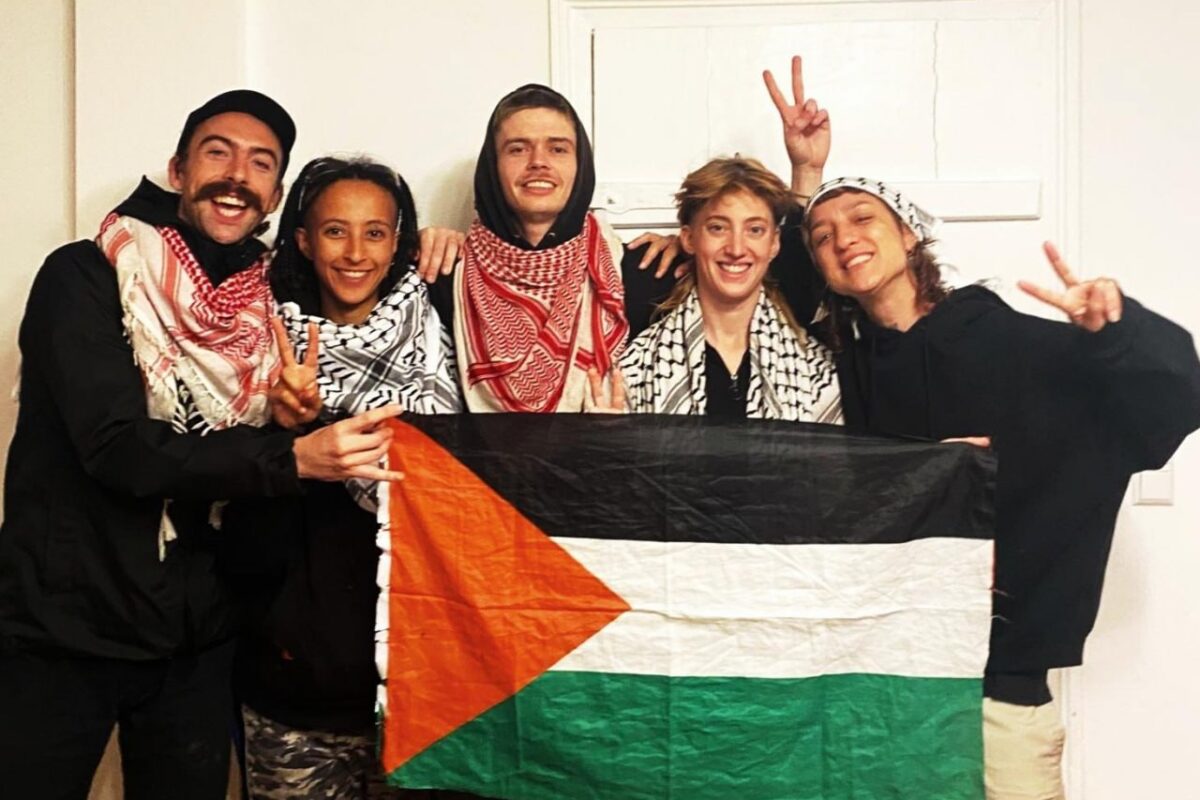
Editor’s Note: On 12th December 2025, The Left Berlin published a report by Roser Garí Pérez about the harsh pre-trial conditions of the Ulm 5, facing trial for a non-violent action against arms manufacturer Elbit Systems, which is complicit in genocide in Gaza. On 26th January, the Ulm 5 filed an appeal. Here we publish a statement by their lawyers, preceded by a summary by Roser of their current condition.
The pro-Palestine movement in Germany has been brutally repressed and persecuted for decades, but since October 2023 the state’s physical, psychological, and legal violence has intensified.
Invoking Germany’s Staatsräson—the unwavering defense of Israel, a state currently on trial at the International Court of Justice (ICJ) for committing a textbook genocide in Gaza—German police have arrested thousands of people, with hundreds of cases now moving through criminal courts across the country. In Berlin alone, police claim to have initiated more than 11,000 proceedings.
People prosecuted for minor offenses such as trespassing, chants, or symbols are treated as dangerous criminals, with cases often heard in high-security courtrooms.
While state violence is largely ignored, or even encouraged, by the political elite and significant parts of the population, activists opposing its most extreme expression—Germany’s complicity in the genocide of the Palestinian people—are criminalized and dragged through lengthy, exhausting legal procedures. Few cases illustrate this political persecution more clearly than that of the Ulm 5.
Further restrictions
Despite the nonviolent and highly targeted nature of their action—which posed no threat to public safety—the German state appears determined to make an example of the Ulm 5 and has denied them bail.
Since their incarceration, they have been subjected to disproportionately harsh treatment. Beyond the abuses documented in my previous report, the Ulm 5 have faced severe restrictions on communication and contact, as well as inhumane detention conditions, including the following:
They also suffer arbitrary restrictions on personal items and information:
The activists also face inadequate access to legal counsel and basic procedural rights. Phone calls and meetings with their lawyers—legally unrestricted—have been repeatedly cut short by prison staff, in apparent violation of the law.
Some individuals report being denied adequate healthcare despite having potentially serious medical conditions.
The trial dates currently offered by the court span nearly three months, from late April to late July. As a result, pre-trial detention may extend to as long as 11 months, exceeding the standard six-month maximum without adequate justification. The court has scheduled hearings non-consecutively over several months, creating significant logistical and financial barriers for lawyers, families, and supporters attempting to attend.
The disproportionately punitive treatment these activists are facing appears designed to punish and isolate them before their trial has even begun—while also serving as a warning to others in Germany who might consider challenging the state’s Staatsräson.
By preemptively punishing those who seek to uphold international law and prevent genocide, Germany adds yet another chapter to its complicity in Israel’s genocide of the Palestinian people.
Dear Sir or Madam,
We, the defence lawyers for the ‘Ulm 5’, have today lodged an appeal against their detention. Our clients must be released from pre-trial detention immediately.
The clients have now been in pre-trial detention for almost five months without interruption. The stricter conditions continue to apply. This includes strict control of telephone calls, visits and letters, confinement to their cells for up to 23 hours a day, and restricted access to books and communal events.
The enforcement of pre-trial detention was disproportionate from the outset. The act was clearly aimed at a legitimate goal, namely, to end the killing of civilians in Gaza. Only material damage was caused in this context; no people were injured. Elbit Systems Deutschland GmbH & Co KG is a wholly owned subsidiary of the Israeli company Elbit Systems Ltd. The latter profits considerably from the war in Gaza and supplies a large proportion of the drones used there. However, no investigation was conducted into this line of defence based on justifiable emergency assistance, and a corresponding request by the defence was ignored by the Attorney General’s Office. The investigating authorities are obviously primarily concerned with making an example of our clients, who are committed to fighting occupation and genocide.
On top of that, now that charges have been brought, the Stuttgart Regional Court is violating the principle of expeditious proceedings, which must be given special consideration in detention cases (Art. 5(3) sentence 2 ECHR; Sections/§§ 121, 122 StPO). The main hearing is not scheduled to begin until the end of April 2026 and is expected to last until at least the end of July. The Regional Court is legally required to begin the trial by the beginning of March 2026 at the latest. The unlawful detention of our clients is thus being prolonged indefinitely, which constitutes a significant violation of their fundamental right to liberty.
All defence lawyers have therefore lodged an appeal against detention with the Higher Regional Court of Stuttgart today.
The signatories are available to answer any questions.
Yours sincerely,
Solicitor Dr Maja Beisenherz, Munich, Info@beisenherz.eu, 0177 / 70 95 812
Solicitor Mathes Breuer, Munich, breuer@kanzlei-abe.de, 0175 / 52 46 963
Solicitor Benjamin Düsberg, Berlin, mail@rechtsanwalt-duesberg.de, 0157 / 30 30 8383
Solicitor Rosa Mayer-Eschenbach, Munich, eschenbach@kanzlei-abe.de, 0176 / 65 35 9443
Solicitor Christina Mucha, Memmingen, info@kanzlei-mucha.de, 08331 / 69 08 136
Solicitor Nina Onèr, Berlin, kanzlei@ninaoner.de, 01520 97 33 278
Solicitor Matthias Schuster, Berlin, mail@anwalt-schuster.de, 0176 / 24 75 8230
Solicitor Martina Sulzberger, Augsburg, kanzlei@anwaeltin-sulzberger.de; 0821 / 50 87 3850
(This press release was written in German. Translation: Ana Ferreira. Reproduced with permission)